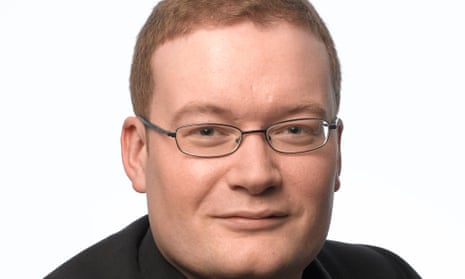Lottery money for the arts is to be more heavily invested outside London with the ratio increasing to 75:25 by 2018, the new chief executive of Arts Council England (ACE) will promise on Thursday.
In his first speech in post, Darren Henley will announce what he called “a significant shift in how we invest our Lottery revenue”.
He said that the current 70% which is spent outside London will increase by at least another 5% within three years.
The London versus the regions issue is one of the most pressing arts policy debates in England and while Henley promises “more of a two-way street”, he stresses the importance of supporting a culturally vibrant capital.
“Let me be clear,” Henley will say. “I’m committed to maintaining London’s status as a world capital of the arts. A flourishing London, with arts and cultural organisations that serve the whole nation, is essential.”
The issue was propelled to the heart of the arts debate by a 2013 Rebalancing our Cultural Capital report by Peter Stark, Christopher Gordon and David Powell.
It calculated that Department for Culture, Media and Sport and Arts Council funding to the arts is heavily skewed to people in London, with them benefiting to the tune of £69 per head compared with £4.58 in other English regions.
When it came to the National Lottery, the report said that ACE had distributed almost £3.5bn of Lottery cash across England since 1995, of which London received £1.35bn (39.1%) – equivalent to £165 per head of population in London, compared with £46.77 per head in the rest of England.
ACE disputed such startling figures and argues that it has moved the ratio from 60:40 to the current 70:30. But the Henley speech is clearly an acknowledgement that more money needs to go the regions.
That was also a key conclusion of an inquiry last year by the DCMS select committee, chaired by the new culture secretary John Whittingdale.
Henley will also highlight another select committee recommendation which said “while it is essential to acknowledge the prevailing financial climate, we would be disappointed if the Arts Council saw any further fall in its grant in aid”.
ACE was hit by a 33% cut in the money it received from the public purse during the coalition government’s tenure.
As part of the funding changes, Henley is also announcing a £35.2m ambition for excellence fund, £31.7m of it to be spent outside London, which will “develop talent and leadership in all regions, support work of increased ambition and help build ‘cultural capacity’”.
Those issues were brought into focus this week when Max Stafford-Clark sounded a warning in the Guardian that his company, Out of Joint, was getting some of its lowest regional audiences even though the play, Crouch, Touch, Pause, Engage, was getting warm reviews.
“The industry is having to take safer and safer decisions,” Stafford-Clark said. “And audiences are taking safer and safer decisions, too. Companies are finding it harder and harder to sell new work.”
Since joining the Arts Council, Henley said he had travelled the length and breadth of the country listening to concerns, visiting more than 60 venues and meeting 250 arts and culture leaders.
He will say: “So far, I’ve seen the challenges we all face. But I’ve also seen the quality of our artistic work in England; the richness of our museums and collections and the imaginative use of our libraries.”
Henley will also use his speech to signal his intention to create a “25-year vision” for developing creative talent across the country. “It will require us to build lots of bridges – and to blow up lots of barriers... I believe that creative talent is everywhere, but opportunity is not. Not yet.”
Henley is delivering his speech in Hull, which is gearing up to be the UK’s capital of culture in 2017. He studied politics at the University of Hull before getting a job at Classic FM where he rose from overnight newsreader to managing director.
Henley said ACE’s investment in Hull during five years of austerity amounted to more than £15m and promised more to come.
“This is a real, gritty city; one that prizes self-sufficiency and individual thought,” he will say. “A home to whalers, fishermen, dockers, Quakers, painters, poets and musicians. It’s seen hard times. But it has never lost its creative soul. Now, there is a new spirit in Hull.”

Comments (…)
Sign in or create your Guardian account to join the discussion